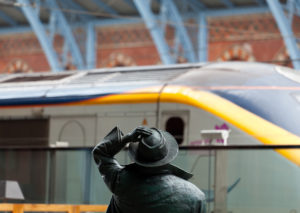Local Elections and the New Era of British Politics

As the UK prepares for the 2025 local elections, the political terrain looks remarkably different from anything we’ve seen in modern British history. For the first time, we’re witnessing a true five-party split, a reflection of a nation no longer shackled to binary politics. Labour may sit at the helm in Westminster following its landslide victory in the July 2024 general election, but political stability it is not. The local elections are shaping up to be a referendum on more than just bins and buses – they’re a snapshot of a shifting national psyche.
With the Conservatives floundering under Kemi Badenoch, Labour losing its early momentum, and Reform UK tapping into lingering discontent, the real story lies elsewhere: the steady rise of the Liberal Democrats and the Green Party. These two parties, often underestimated, are carving out significant space, especially among the younger, pro-European generation, the future of British politics.
Labour’s Challenge: Power, but Not Passion
Keir Starmer’s Labour government stormed into Downing Street less than a year ago, buoyed more by public exhaustion with the Conservatives than by a sweeping embrace of Labour’s agenda. Their majority was historic – yes – but their vote share was historically low. And now, with the shine wearing off, local elections will test just how deep public support really runs.
Voters are already asking whether Labour is bold enough to confront the big issues: housing, climate, and our fractured relationship with Europe. The party is governing with caution, understandable, perhaps, but in a country yearning for renewal, that caution risks becoming a liability.
The Conservative Decline: No Vision, No Voice
Meanwhile, the Conservative Party, having been battered at the ballot box in 2024, remains adrift. Under Kemi Badenoch, the Tories have embraced familiar culture war tactics, but the public mood has changed. These tactics no longer land with the same impact, they feel tired, divisive, and detached from the real concerns of everyday life.
Badenoch’s leadership has failed to inspire even her own base. Polling shows a lack of confidence in her as a future prime minister, and in truth, it’s difficult to pinpoint what today’s Conservative Party even stands for beyond noise and nostalgia. The party looks backward, while much of the country, especially the younger electorate, is looking resolutely forward.
Liberal Democrats and Greens: Quietly Gaining Ground
This forward-looking sentiment is precisely why the Liberal Democrats and Greens are well placed to surge in the upcoming elections. Both parties are increasingly aligned with the values of a new generation of voters: progressive, inclusive, environmentally conscious, and critically, open to reconnecting with Europe.
Brexit, once the dominant force in British politics, is rapidly losing relevance. But its legacy lives on in the form of divisive and nationalist rhetoric, much of it the product of a two-decade campaign driven by hardline ideologues. That sentiment, however, is ageing. It is largely concentrated in older demographics, while a more open and globally minded generation is coming of age and beginning to shape the national discourse.
The Liberal Democrats offer a home to moderate, internationalist voters disillusioned with the tribalism of the big two. Meanwhile, the Greens are providing serious answers to long-ignored questions around sustainability, climate, and social equity. Both parties are likely to perform well, especially in urban areas, university towns, and progressive communities. Don’t be surprised to see them take control of councils once considered unwinnable.
Reform UK: The Last Stand of the Brexit Era
Reform UK continues to poll well in certain pockets, drawing those still disillusioned by the perceived failures of Westminster. But their message – a cocktail of outrage and nostalgia – is increasingly out of sync with where the country is heading. Reform represents the final chapter of Brexit-era politics, not the beginning of anything new.
Their appeal is largely confined to older voters who feel left behind by change. And while those concerns deserve to be heard, they do not form the basis for a forward-facing political movement.
A More Plural, More Hopeful Future
These local elections won’t just decide who fixes potholes, they’ll reflect the ongoing evolution of British democracy. The five-party split is here to stay, and it speaks volumes about a society that’s tired of extremes, tired of division, and ready for something more constructive.
We are moving toward a more plural, more open, and more representative political system, one where collaboration, not confrontation, defines the future. The old binaries are breaking down. The future of British politics is neither red nor blue, but a patchwork of voices that better reflect the diversity of modern Britain.
And that future, make no mistake, is pro-European, progressive, and deeply focused on what lies ahead, not behind. The direction is clear. It’s forward, not backward.





